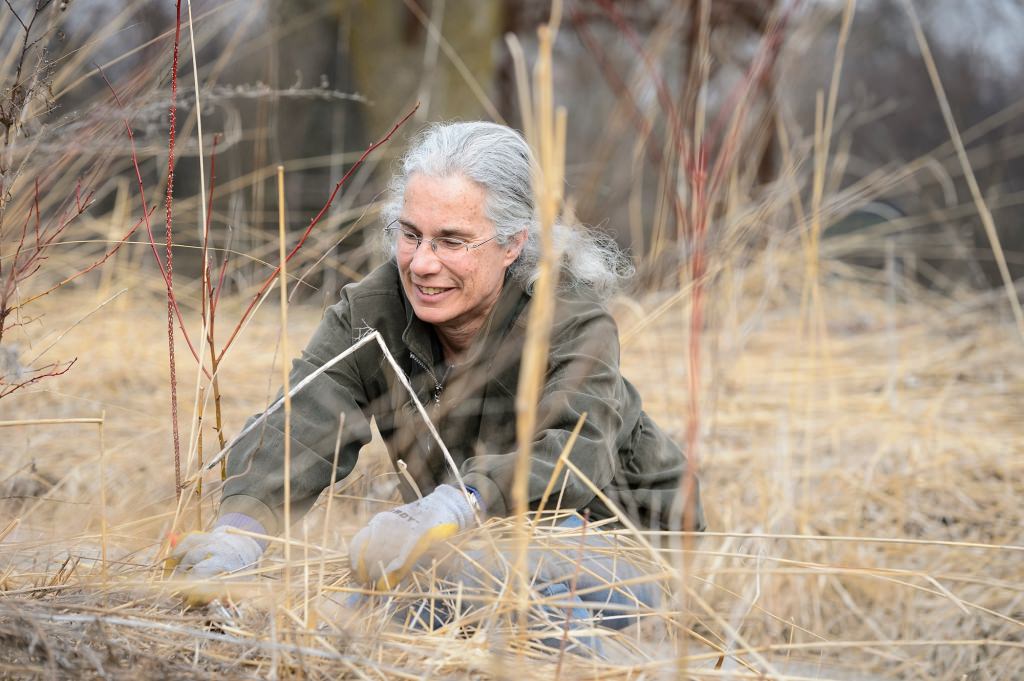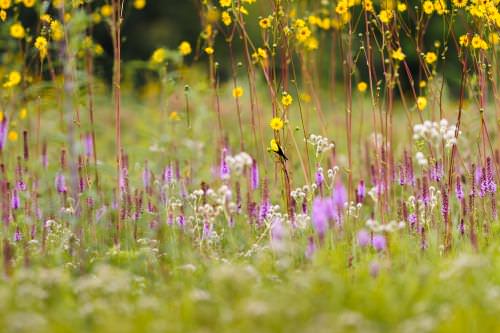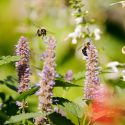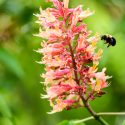Arboretum conference offers native gardeners guidance, ideas Sept. 17

Susan Carpenter, a senior outreach specialist, takes a break from pruning plants and brush in the native prairie garden at the UW–Madison Arboretum this spring. Photo: Jeff Miller
As fall approaches and the sun gets lower in the sky, mark the end of one growing season by planning for the next at the University of Wisconsin–Madison Arboretum’s annual Native Gardening Conference.
This year’s conference, Native by Design: Gardening for a Sustainable Future, will bring experts from across the university and elsewhere to discuss garden design, invasive species, beneficial insects and other topics. Targeted at beginners and experts alike, the conference provides practical tips on maintaining a diverse garden in southern Wisconsin.
The all-day conference will take place Sept. 17 at the Arboretum visitor center, 1207 Seminole Hwy. Advanced registration is required by Sept. 7.
Gardens planted with native species are well-adapted to local growing conditions and support native ecosystems and high levels of biodiversity. Birds, other animals and insects, including pollinators, rely on native plants to survive.
“We emphasize how these gardens are sustainable. They don’t require inputs of water, herbicides or insecticides, and they support a lot of biodiversity,” says Susan Carpenter, native plant gardener at the Arboretum and one of the speakers at the conference.

A goldfinch perches on amid a sea of flowering prairie dock, purple gayfeather and rattlesnake master plants at the Curtis Prairie at the University of Wisconsin–Madison Arboretum. Photo: Jeff Miller
Timed to coincide with the peak season of the native plant garden and prairies at the Arboretum, the conference will use the Arboretum’s landscapes as demonstrations for the workshops. Available sessions include landscaping for birds, developing rain gardens and combatting invasive jumping worms. The Asian jumping worm was first identified on Arboretum grounds in 2013, and concerns over its spread canceled several garden sales this year.
But not all invertebrates are bad. PJ Liesch, the director of the UW–Madison Insect Diagnostic Lab, will discuss roles for beneficial insects in the garden and how to develop outdoor spaces that attract them. Native gardens thrive on more than just charismatic pollinators like bumble bees, Liesch says. Solitary bees, beetles and even flies and wasps are overlooked, but important, pollinators, while a whole ecosystem of decomposers and predatory insects maintains a healthy garden.
“I really like to focus on native plants,” says Liesch, who will be speaking at the conference for the first time this year. “The reason is those plants are what native insects have adapted to for thousands and thousands of years, versus some of the horticultural varieties, which look very flashy to the human eye, but may not be attractive to beneficial insects.”
While past conferences have focused on individual urban and rural gardeners, this year’s event will also incorporate discussions on managing community gardens in neighborhoods, community centers and schools.
Benjamin Vogt, owner of the Nebraska-based prairie design firm Monarch Gardens, will give this year’s keynote address. His talk will discuss “A New Garden Ethic,” a philosophy of sustainable gardening that evolves from Aldo Leopold’s land ethic, which focuses on caring for the natural world, that was developed during Leopold’s work at the Arboretum and UW–Madison.
“I ask how our built landscapes, especially the urban, can help balance us with wildness again, how we can bring wildness into our daily lives, and how doing this will help us and countless other species be far healthier and more resilient,” says Vogt.
Started in its modern form in 2007, the Native Plant Conference shares the Arboretum’s expertise in native Wisconsin ecosystems with local gardeners. The Arboretum is the birthplace of prairie restoration and conducts ongoing research into native landscapes.
“This conference gives people the chance to be in a native garden, learn how to create this kind of garden, and take a closer look at this kind of garden and what it has to offer,” says Carpenter.



